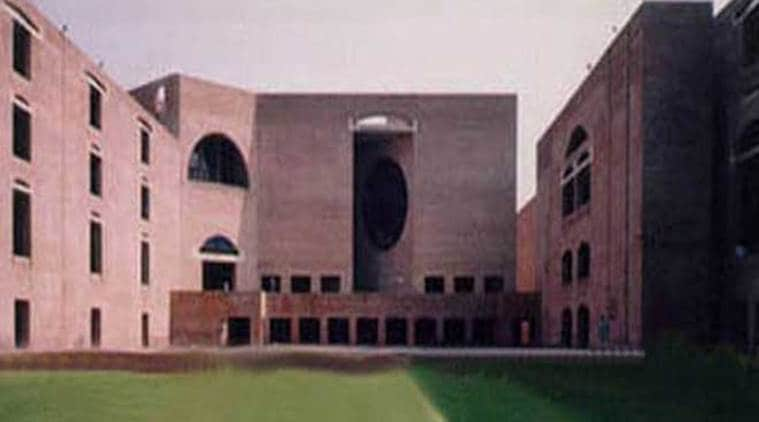The proposed law, once passed by Parliament, will make each of the 20 Indian Institutes of Management (IIMs) an ‘Institution of National Importance’ like the IITs, NITs and AIIMS. In other words, they will be able to grant degrees to students. Currently, all IIMs are separate bodies registered under the Societies Act. Since Societies are not authorised to award degrees, students admitted to their Master’s programme are given a postgraduate diploma in management or PDGM. Similarly, those pursuing doctoral studies are awarded the title of a ‘Fellow’ at the end of their research. Although the PG diploma and ‘Fellow’ title are recognised by the Association of Indian Universities and the HRD Ministry to being equivalent to an MBA and a Ph.D degree, respectively, the equivalence is not universally accepted, especially for the Fellow programme.

This Bill was conceived during the UPA tenure but it didn’t see the light of the day because the IIMs, even then, were concerned that the legislation would curb their autonomy.
So does it affect their autonomy?
No. In fact, the Bill bestows more autonomy than what the IIMs currently enjoy. If the government can muster political support for this legislation in the House, then the IIMs will be the first set of ‘Institutions of National Importance’ in which the President will have no direct role. In other institutions such as the IITs and NITs, the President acts as the Visitor who appoints the directors and chairpersons on the advice of the HRD Ministry. IIMs, under the Bill, are empowered to appoint their own directors and chairpersons. Currently, as Societies, they don’t enjoy this liberty.
In addition to the Board of Governors (BoG), which each IIM will continue to have even under the law, the Bill proposes to set up a ‘Coordination Forum’ to “facilitate sharing of experiences and concerns with a view to enhance the performance of the institutes”. Unlike the IIT Council, which also coordinates activities of the 23 IITs, the 33-member Forum of the IIMs will not be headed by the HRD Minister. Instead, “an eminent person” shortlisted by a search-cum-selection committee, will be appointed as the Forum’s chairperson for a term of two years.
For accountability, independent agencies will periodically review the performance of the IIMs and CAG will continue to audit their accounts.
Why did it take two years for the Bill to be approved by the Cabinet?
Story continues below this ad
When the draft Bill was first made public in June 2015, when Smriti Irani was HRD Minister, the IIMs objected to the ‘excessive government control’. IIMs, especially IIM-Ahmedabad, had attacked two clauses of the draft Bill, saying it “reduced the institutes to government departments”. Under the two clauses [3(k) and 36(1)], the IIMs would have had to seek the government’s approval for every decision, including fee structure, admission criteria, formation of academic departments, salary of the staff and constitution of BoG.
These powers are currently held by the IIM BoGs.
How was this stand-off resolved?
The controversy forced the ministry to dilute the contentious clauses, but, from this point, the Prime Minister’s Office (PMO) raised objections to several provisions. The ministry, under Smriti Irani’s leadership, didn’t agree to some of the changes suggested by the PMO.
The PMO, for instance, wanted all references to the ‘Visitor’ dropped from the Bill. Under the first draft of the legislation, the BoG had two nominees of the Central government, but PMO wanted one. The Bill provided for three alumni members on the BoG of each IIM; PMO suggested five. The PMO wanted the ‘Coordination Forum’ to be headed by an eminent person, not the HRD Minister as proposed by the ministry. After Irani was moved to the Textiles Ministry, her successor, Prakash Javadekar, relented to all the demands made by the PMO and Bill was approved by the Cabinet within six months of his joining.
Will the IIMs provide reservation in faculty recruitment?
Though Javadekar has clarified that the “law of the land will apply”, the Bill only has a vague enabling provision on faculty reservation. So while the proposed law categorically states that IIMs will have to provide reservation for SC/ST and OBC students, it has a clause which only says that IIMs shall try to recruit teachers from weaker sections of society. Institutes say they will set aside a chunk of faculty positions for SC/ST and OBC candidates only once the government issues directions in writing.
Other B-schools are upset over the IIM Bill. Why?
Story continues below this ad
Over the last several decades, IIMs, by virtue of their reputation, had lent a certain amount of credibility to a postgraduate diploma in management (PGDM). Other big private B-schools which offer PGDM — such as XLRI-Jamshedpur, BIMTECH in Greater Noida and SP Jain Institute of Management and Research in Mumbai — now fear that with IIMs not offering PGDM, their own PG diplomas will suffer in market value and put them at a distinct disadvantage. The Education Promotion Society of India (EPSI) had written to the HRD Ministry on behalf of private management schools, requesting the government to allow PGDM institutions to also offer MBA degrees. But since a private educational institution can award degrees only if it becomes either a state university or a deemed university or gets affiliated to a state university, the government has asked them to explore these options.








































